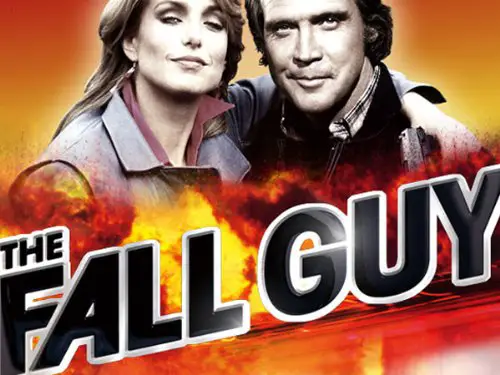Outside of the all-too-familiar slate of superhero and Star Wars films and series being pumped out on a monthly basis, it’s all too rare that something original receives hype and promotion. Many of the big-name projects of the last couple of years and going forward are some kind of drawing from an existing IP, be it a sequel, prequel, reboot, remake, spinoff, or complete divergence from the original works and being linked by name alone.
Recent headlines of the upcoming Wednesday series – bringing The Addams Family back to the screen – and Ryan Gosling starring in The Fall Guy – a movie adaptation of the 1980s TV show – look to continue this trend in the years to come. With so many familiar titles being released as new products, it won’t come as a surprise that some critics see Hollywood as creatively bankrupt these days.
This isn’t to say that all repeat imaginings – to attempt a catchall term for this now-common practice – are inherently bad in media, as we’ll explore. However, the lack of new ideas, worlds, and stories in entertainment media – particularly in movies and TV shows – is becoming increasingly apparent.
Ways that repeat imaginings can work in entertainment
There are benefits to working with what exists. Building on an established and popular name comes with a seemingly built-in base of customers, is easy to grow as the foundations are there, and can draw in big names. Creators of these repeat imaginings can bring something new to the established story, expand the universe, and even make the most of modern technology to make it better than it was before.
There are many examples of how this can work across entertainment media. Having recently concluded, a fine example is Better Call Saul, which was reviewed as a more profound prequel series to the smash-hit Breaking Bad. Core to its success was its adherence to the pre-established character and world, as well as its superb writing. Aligning to creating a better experience with modern technology, Thunderstruck II was recreated into Thunderstruck Wild Lightning Link Win and has quickly joined the top casino games page of the platform. Initially released in 2010, casino tech has come a very long way, so the developers kept much of the original, but updated areas and built in new mechanics. It has modernized the popular classic with good reason.
In the movies, you probably wouldn’t know it from a storytelling perspective by watching them back to back, but The Terminator and Terminator 2: Judgment Day were released seven years apart. While it’s praised for upping the action and subverting expectations to a tee, it still adheres to the universe and doesn’t break the rules established in the first film. Then, over in video gaming, the God of War series entered a soft reboot with the 2018 release, pivoting from Greek to Norse mythology but also adjusting its approach. New tech like the one-shot camera made the experience in a new world wonderfully immersive, but most of all, while staying true to the character of Kratos, the superb story also builds a new arc for him through the introduction of his son.
Movies tend to get it right more often
The great thing about movies in the current landscape of entertainment media is that they’re short. At the most, they’ll command two hours of your time and will usually tell a complete story – even if there’s another one scheduled on the way. It makes self-contained, original films very difficult to craft a repeat imagining from unless the original is several decades old – which is why Alfred Hitchcock’s The Birds is said to be in Hollywood’s crosshairs. This may work given how perceivably outdated the effects are in the 1963 classic.
The record-holding flick Avatar also makes sense for a sequel. While the original movie saw a triumph for the natives, the enemy was clearly detailed as a relentless force that would keep coming back. So, The Way of Water lends itself to audiences in a way that Top Gun: Maverick perhaps didn’t. Yet, the much-belated sequel was a huge success, with some critics even going as far as to call it better than the original. Tom Cruise can still play the role, despite his age, and this helped a great deal. This is also why the planned Beverly Hills Cop 4 and Indiana Jones 5 are bad ideas.
Creating content for the sake of content
A huge problem with television shows now is the new state of play. It used to be that shows had to be well-written to keep audiences engaged for weeks on end to sell advertising space. Now, eight hours of bingeable “content” is all that’s needed to keep eyes on the screen. The fact that there are rumours swirling around about a sixth season to Breaking Bad should showcase how serious it’s become, as the fifth season was royally conclusive.
A lot of decisively bad shows end up looking like quick cash grabs. Bel-Air, the drama derived from the 90s sitcom Fresh Prince of Bel-Air, is a prime example, with its tedious caricatures and lack of enjoyable scenes. The latest crack at the video game franchise Resident Evil in the form of a TV show also failed immensely to draw in the core elements of the source material. There is some good out there, though, with Cobra Kai validating its existence through strong storytelling despite how strange its inception is.
For any of these forms of repeat imaginings to work, the piece needs to prove that it deserves to exist by telling a compelling story, adhering to the pre-established rules and story of what came before, and it has to feel connected to the source material. This isn’t done through cheap line or event repeats, though.
















